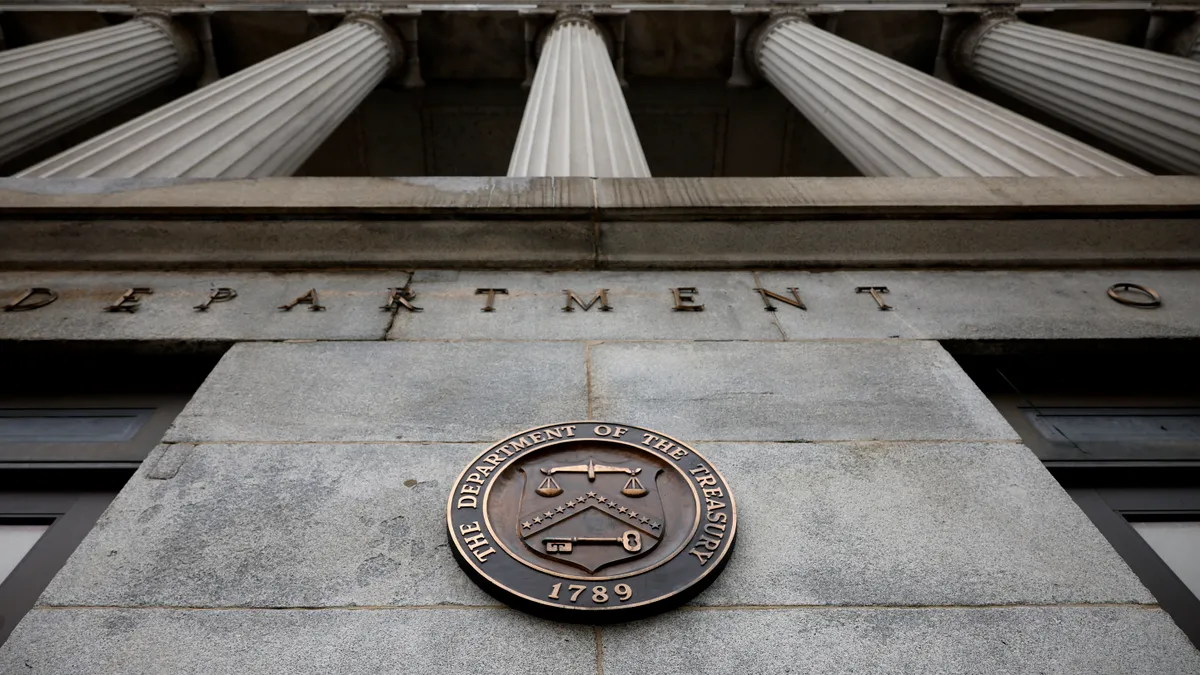In any sitcom episode, there’s generally a “B” plot. The alternating storylines help keep an audience’s attention. Or the B plot could fill time if A doesn’t support 22 minutes of setups and punchlines on its own. But often, B can tie into A as twin pillars to an overall theme.
Canadian real estate investor Brookfield Property Group accused the Federal Deposit Insurance Corp. last week of cherry-picking winners in its auction of $33.2 billion in loans it seized when Signature Bank failed in March.
“[We] have heard from numerous sources, including from your adviser (Newmark) and from media reports, that a winning bidder has been selected and that this bidder’s price is lower than ours,” Brookfield wrote to the regulator Thursday in a letter seen by the Financial Times. “If the winning bidder’s price is in fact lower than ours, as it appears to be, we intend to launch a formal protest, as we believe that this would be in violation of law.”
Brookfield bid more than 80 cents on the dollar for $4.4 billion in affordable housing loans to apartment buildings in New York City, two sources briefed on the matter told the Financial Times. However, a group led by Related Fund Management won the auction despite bidding less than 70 cents on the dollar, the sources said, lending credence to a Wall Street Journal report published last month.
The FDIC, at the start of the bidding process, spotlighted its obligation to preserve affordable housing, and it engaged New York City and state housing authorities and community-based organizations before putting the portfolio up for sale. That means prospective buyers have had to navigate input from those entities, too — and often partnered, on their bids, with specialists or nonprofits in the field.
Brookfield bid with Tredway, a New York City-based affordable housing lender. Related, a subsidiary of the firm that owns New York’s Hudson Yards, partnered with Community Preservation Corp. and Neighborhood Restore.
New York City Mayor Eric Adams’ administration gave its support to the Related bid, according to The Real Deal.
Brookfield, however, argued last week that the FDIC indicated it would assign no preference to bidders with political support, according to its letter.
“[Once] a bidder had been qualified and cleared to bid (as we were), all such bidders would be on equal footing and price would be the only determining factor at that point,” Brookfield asserted.
Brookfield wouldn’t be the first company to accuse a banking regulator of cherry-picking. When the Securities and Exchange Commission sued Ripple in 2020, the crypto firm’s lawyers equated the agency’s legal theory with “picking virtual currency winners and losers.”
Brookfield, the FDIC and Newmark declined to comment to the Financial Times. Related did not respond to requests seeking comment.
The auction is expected to conclude this month.
Brookfield’s letter could add fuel to an already incendiary set of allegations surrounding the FDIC, after a damning expose by The Wall Street Journal last month detailed allegations of sexual misconduct, retribution and a leadership that appeared oblivious at best and enabling at worst of a toxic workplace culture.
Lawmakers have demanded investigations of FDIC workplace culture by third parties — and some on Capitol Hill have called for the agency’s chair, Martin Gruenberg, to resign.
So where does the television analogy fit?
First, this is not to compare allegations of sexual misconduct to a plot device in a sitcom. That ongoing scandal, however, must be seen as the biggest threat to the FDIC as it currently runs. But it wouldn’t be the theme for a screenwriter.
The theme, rather, is the FDIC’s handling of Signature’s failure. Three Republicans on the House Financial Services Committee, in a letter to Gruenberg last month, drew a connection between the FDIC’s workplace culture scandal and the agency’s April report noting a shortage of bank examiners.
“The FDIC experienced resource challenges with examinations staff that affected the timeliness and quality of [Signature Bank] examinations,” Reps. Patrick McHenry, R-NC; Bill Huizenga, R-MI; and Andy Barr, R-KY, quoted the April report as saying.
“Your report’s limited discussion of staffing challenges related to bank examiners did not consider how the longstanding toxic FDIC culture inhibits employee retention,” the lawmakers wrote. “By ignoring or choosing to remain silent about workplace misconduct at the FDIC, your leadership may have contributed to the financial instability and threats to financial security of Americans that were observed in March.”
With respect to its auction process, the FDIC can be credited for transparency in laying out its commitment to doing right by affordable housing.
Some lawmakers, though, will also note the agency’s obligation to reward the highest bidder — and make no small bones that any missed opportunity on the auction block will mean banks will pay the difference to the Deposit Insurance Fund.
Small banks were excused from paying into the DIF in connection with this year’s bank failures. The FDIC can count as a blessing that some congressman from [insert swing state] won’t be able to drag the agency for stressing a community bank’s bottom line.





















